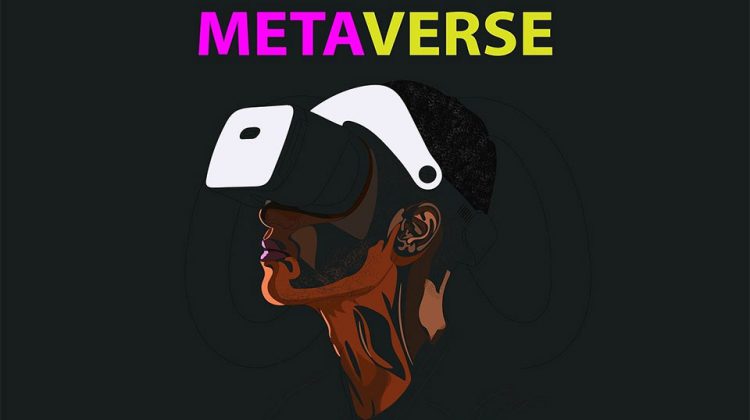Homeownership is without doubt one of the extremely coveted life targets and a pinnacle of the American dream. A long time in the past, shopping for a house was a problem since banks and lending establishments have been very particular about who may qualify for a mortgage. That meant most wannabe owners who didn’t meet the high-income limits or elevate the required down cost didn’t have an opportunity.
These days, proudly owning a house is quite a bit simpler, due to the various mortgage applications provided by completely different lenders and even authorities establishments. Earlier than we discover the frequent varieties of mortgages, let’s first perceive how these loans work and easy methods to apply for one.
Getting a Mortgage
A mortgage mortgage is a financing choice the place a lender pays to your dwelling with the settlement that you simply’ll pay again the principal plus curiosity over a set interval. Like every other mortgage, a mortgage has phrases and circumstances that dictate how a lot the borrower can pay monthly, the rates of interest, and what occurs in case of default. The standard mortgage compensation interval ranges between 10 and 30 years.
Earlier than qualifying for any mortgage product, the lender will consider your software to examine should you meet the eligibility necessities. The latter usually varies amongst lenders and relies on the mortgage product you need. As an illustration, the mortgage necessities for USDA loans fluctuate from that of typical loans. A few of the primary mortgage mortgage necessities embody:
- Credit score Rating. This measures your creditworthiness or how seemingly you’re to repay a mortgage. Most lenders anticipate debtors to have a credit score rating of 680 and above. A rating of 740 to 799 is taken into account ‘excellent’ whereas a rating of 800 and above is taken into account ‘wonderful,’ and most lenders might be snug approving a better mortgage quantity. Lenders search for sure elements when figuring out your credit score rating. These embody your current mortgage quantity, compensation schedule, and the way usually you missed a cost.
- Proof of revenue. Proof of revenue assures the lender that you’ve got an revenue supply and may meet the month-to-month funds. Some lenders will take note of proof of revenue and property to attenuate the chance of default.
- Debt-to-income ratio. The debt-to-income (DTI) ratio measures your month-to-month bills or debt to your revenue. The usual DTI for many lenders is 36%, that means you must make and hold extra money than you spend. The next DTI, usually above 50%, reveals that you simply spend greater than you earn, which is normally an indication of accrued money owed or poor monetary administration.
- Property Necessities. Earlier than a lender funds your private home, the property will bear a house inspection and appraisal to make sure it meets some high quality requirements. The appraisal course of varies from one mortgage and lender to a different.
In case you are wanting ahead to taking out a mortgage within the close to future, beneath are the 4 major sorts you’ll select from.
4 Forms of Mortgages
Mortgage loans might be labeled in a number of classes relying on elements resembling the utmost mortgage quantity and whether or not it’s assured/insured or not. There are 4 major varieties of mortgages below which you’ll classify completely different mortgage merchandise available in the market. These are:
1. Typical Mortgages
Typical mortgages are provided by personal lenders. These housing loans include stricter necessities, resembling credit score rating and debt-to-income ratio. The minimal down cost for this mortgage is 3% and attracts a barely greater personal mortgage insurance coverage (PMI). The latter is an insurance coverage cowl that protects the lender in case the borrower defaults, dies, or can’t meet contractual obligations.
Any mortgage product whose down cost is lower than 20% of the mortgage quantity attracts a PMI. You’ll pay this premium with typical mortgages till you’ve constructed a 20% fairness in your house. The good thing about typical mortgages is {that a} bigger down cost affords you a decrease rate of interest. You should buy nearly any property, supplied it passes the inspection and appraisal course of.
Some cons of typical mortgages embody a pricey PMI and better charges should you don’t make a large down cost. This mortgage product is right for debtors with secure incomes and wonderful credit score scores.
You Could Learn: Advantages of Taking Out a House Mortgage
2. Mounted-Price Mortgage
Because the title suggests, a fixed-rate mortgage includes a fastened rate of interest all through the mortgage period. The character of the mortgage makes the month-to-month funds fairly predictable, therefore simpler to plan for. Nonetheless, it’s value noting that property taxes and insurance coverage might fluctuate in the course of the mortgage period.
Most lenders provide fixed-rate mortgages to draw debtors who worth predictability of their mortgage compensation. Not like adjustable-rate mortgages, this mortgage product is right for somebody who’s shopping for a ‘endlessly dwelling.’ The latter might be costly however has every little thing that you simply want in a house; therefore you haven’t any plans of transferring out quickly.
The danger of a fixed-rate mortgage is that after the charges have been locked, you gained’t change them except you refinance. If the market charges drop, you possibly can find yourself overpaying hundreds of {dollars}.
You Could Learn: Levels of ITIL Lifecycle for Providers
3. Adjustable-Price Mortgage
With adjustable-rate mortgages, the rates of interest change relying in the marketplace circumstances. Usually, the charges are fastened for a given interval, say 5, 7, or 10 years, known as an introductory interval; then, it turns into adjustable for the remaining interval. The fastened rates of interest in the course of the introductory interval are sometimes lower than that of the 30-year fastened mortgage.
This mortgage product additionally comes with charge caps to guard debtors and lenders from sudden fluctuations. In different phrases, there’s a restrict on how low or excessive the rates of interest can go. Adjustable-rate mortgages are perfect for debtors who need to pay extra in direction of the mortgage early on, i.e., in the course of the fixed-rate introductory interval.
The advantages of adjustable-rate mortgages are decrease introductory charges, whereas the downside is that high-interest charges imply you’re paying extra for the remaining mortgage period. This mortgage is right for debtors shopping for a starter dwelling, that means they don’t essentially should stay in that dwelling for the whole mortgage time period.
You Could Learn: Distinction between Private Mortgage and House Mortgage
4. Authorities-Backed Loans
Final however not least are the government-backed loans, which include mortgage merchandise resembling FHA, VA, and USDA loans. All these loans are assured by the federal government, that means they’re much less dangerous for lenders. In case of a default, the federal government can pay a portion of the mortgage quantity. Beneath is a fast overview of the favored government-backed loans:
- FHA loans – These loans are insured by the Federal Housing Administration and issued by a financial institution or permitted personal lender. The mortgage is out there for debtors with a decrease credit score rating, e.g., within the greater 500s and low 600s. It includes a minimal down cost of three.5% and mortgage insurance coverage paid upfront and in month-to-month installments.
- VA loans – these loans are designed for qualifying veterans and their spouses. It’s a zero-down cost, low-interest charges provided by permitted lenders, and backed by the Division of Veteran Affairs.
- USDA loans – These are zero-down, low-interest loans issued by permitted lenders and assured by the U.S. Division of Agriculture. It targets debtors with low to medium revenue beneath 115% of the realm median revenue.
All government-backed loans are non-conforming since they don’t adhere to the necessities of Freddie Mac and Fannie Mae. One other instance of a non-conforming mortgage is a Jumbo mortgage, ideally suited for high-net-worth people trying to purchase high-value property. A jumbo mortgage is a product above a conforming mortgage restrict of $647,200.
You Could Learn: How USDA Enterprise Loans Have Turn out to be the Higher Choice
Mortgage Closing and Transferring to Your New House
You may apply for any of the mortgage merchandise listed above based mostly in your wants and {qualifications}. In case your software goes by way of to last approval, you’ll proceed to shut and be able to take possession of your new dwelling.
After signing the closing paperwork, you’ll have 60 days to maneuver in. This is applicable to all owner-occupied properties, so that you need to discover dependable movers who can beat the deadline, i.e., whether or not you’re relocating from one other city, metropolis, state, and even nation.















